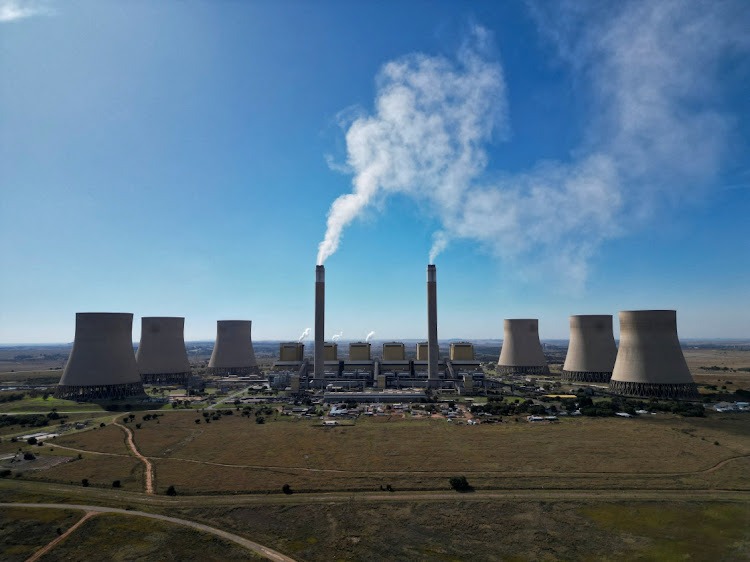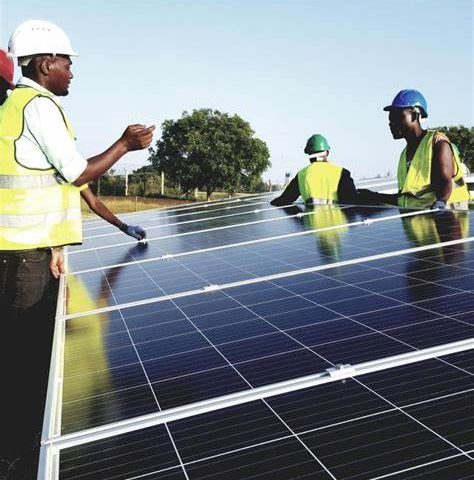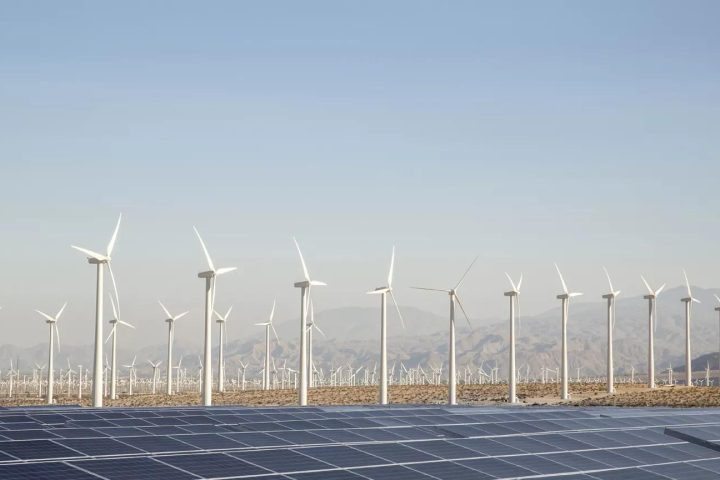South Africa, Egypt, and Algeria have been identified as the top three emitters of carbon in Africa.
According to Global Carbon Budget data released in 2023, South Africa is contributing 435.9 million tonnes, Egypt, with 249.6 million tonnes, and Algeria, responsible for 176.2 million tonnes.
Join our WhatsApp ChannelThree countries combined, produce more than 60 per cent of Africa’s carbon emissions.
Nigeria came fourth with 136,986,780 million tones, followed by Libya with 74,525,080 million tones. The rest five in the top 10 are Morocco (70,577,660 million tonnes), Tunisia (31,582,746 million tonnes), Angola (21,362,716 million tonnes), Ghana (21,312,802 million tonnes), and Sudan (21,038,216 million tonnes).
On a per capita basis, one of the largest oil-producing countries in Africa, Libya, has the continent’s highest CO2 emissions.
However, while Africa comprises about 17 per cent of the world’s population, it only contributes just 4 per cent of global carbon emissions at 1.45 billion tonnes.
With 11.47 billion tonnes, China is the world’s largest polluter, followed by the United States (5 billion tonnes), India (2.7 billion tonnes), Russia (1.75 billion tonnes) and Japan (1.07 billion tonnes).
Unfortunately, the continent suffers the impact of climate change the most. According to the International Rescue Committee, seven out of the 10 countries most vulnerable to climate disaster are in Africa.
Carbon (IV) oxide also known as CO2 has been identified by scientists as a major greenhouse gas released to the atmosphere which has over the years led to global warming and consequent climate change, leading to a global advocacy for actions that promote environmental sustainability.
READ ALSO: Sahara Group Backs Waste To Wealth In Sustainability Effort
CO2 is emitted from the combustion of fossil fuels like oil, coal, and gas, as well as from deforestation and cement production.
Prime Business Africa reports that in a presentation during the first Asharami Square held in Lagos on Monday, 24 June, CEO of Egbin Power Plc, Mokhtar Bounour, said Africa countries have opportunities to use their vast natural resources to develop in a very sustainable way.
He noted that even though Nigeria being the largest oil producer in Africa, came fourth in the top 10 countries with highest CO2 emission in the continent. “We need to take advantage of this opportunity to make the country grow better than now,” Bounour stated.
In his presentation titled, “Generating Strategy to Keep Carbon at Bay,” Mr Boonour listed greenhouse gas emissions by sectors. According to him, electricity and heat production sector accounts for 25 per cent, Agriculture, forestry and other land use emissions contribute 24 per cent, Industry 221 per cent, and transportation 14 per cent. Other energy sources and buildings have 10 per cent and 6 per cent respectively.

He noted that reducing carbon emissions would help protect Africa’s natural resources and biodiversity.
“As Africa’s energy demand grows, it is essential to transition to cleaner energy sources to ensure alignment with sustainable development goals. Reducing carbon footprints by investing renewable energy can provide sustainable and reliable energy, decrease reliance on fossil fuels and foster economic development,” he advised.
The Egbin Power CEO explained measures nations can take to control carbon emission such as avoiding or reducing activities that cause emissions, sequestration, and carbon offset.
Highlighting the power generating company’s carbon footprints, Bounour said Egbin has six steam powered turbines (220MW each) producing 1,320 MW.
READ ALSO: Experts Highlight Ways Africa Can Participate In Energy Transition For Sustainability
He mentioned some sustainability initiatives of the company to include “Reforestation of Egbin Power Plc premises (circa. 1,000 trees in the past three years) to preserve biodiversity, adoption & enforcement of ANSI Lighting Design Standards for Egbin built environment; gradual switch from Internal Combustion Engines (CES) to Compressed Natural Gas (CNG) and Electric Vehicles (EVs) for the company’s operational vehicles; protecting the water through close monitoring of its effluent to ensure it meets environmental standards and doesn’t harm aquatic ecosystems; renewable Energy Integration with the Wind Turbines; electronic storage and transmission of Egbin processes.”
Egbin Power Staff Commute To Work With Bicycles, Electric Scooters
As part of efforts to reduce carbon footprints, the Egbin Power CEO revealed that staff members have started commuting to work with bicycles and electric scooters.
He said it is part of efforts by the company to reduce carbon emission caused by the use of vehicles that burn fossil fuel.
Egbin Power, a subsidiary of Sahara Group, with an installed capacity of 1,320 megawatts is located at Ijede / Egbin, in Ikorodu, Lagos State.
According to Bounour, the company has large expanse of land and is like a small village so the staff were encouraged to use bicycles and electric scooters in going to sites to promote sustainability.
Victor Ezeja is a passionate journalist with seven years of experience writing on economy, politics and energy. He holds a Master's degree in Mass Communication.



















Your blog is a treasure trove of valuable insights and thought-provoking commentary. Your dedication to your craft is evident in every word you write. Keep up the fantastic work!